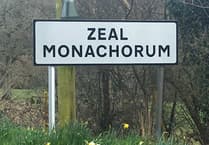ALMOST a third of bills council house tenants in Mid Devon have been charged for services such as repairing deliberate damage or pest control are being collected.
Mid Devon District Council’s cabinet heard that of the nearly £62,000 billed to its tenants in the year to this April, just over £18,000 had been paid.
The bulk of the charges – £42,234 – relate to “voids”, which includes properties being empty due to abandonment, eviction, or the move of a tenant to another property.
Added onto similar historic debts, the council had an overall debt of £137,866 connected to uncollected recharge fees.
Councillors were debating a “recharge policy”, which relates to costs it passes onto its housing tenants.
As well as the cost of repairing deliberate damage to property and visits by pest control professionals, charges also include fees if people miss appointments for boiler services and similar costs.
Simon Newcombe, the council’s corporate manager for public health, regulation and housing, outlined the challenges the council sometimes faces in trying to collect recharge fees.
“Some tenants disappear, which makes recovery challenging,” he said.
“They vacate the properties overnight and move to an unknown address. Some do sign up to payment agreements, but the breaking of these by the tenant is a common issue.”
Mr Newcombe added that if court proceedings are launched, courts often sympathise with tenants.
“When we enforce the debt through court proceedings, the court often takes the tenant’s vulnerability into account, so we experience little or no recovery (of funds),” he added.
Mr Newcombe said that covid restrictions had prevented his officers from visiting council houses and neighbourhoods as frequently during the pandemic, but that a return to normal working patterns meant the council now has a better idea of where problems might emerge.
“We find the contact with tenants to be the best tool for engagement, and neighbourhood walkabouts are a good chance to have a look at properties and have early conversations with tenants to help head off costs that could become more expensive if not dealt with sooner.
“While I would love to see a collection rate of greater than 30 per cent, our recovery rate is comparable to the sector.”
Bradley Gerrard
LDRS




